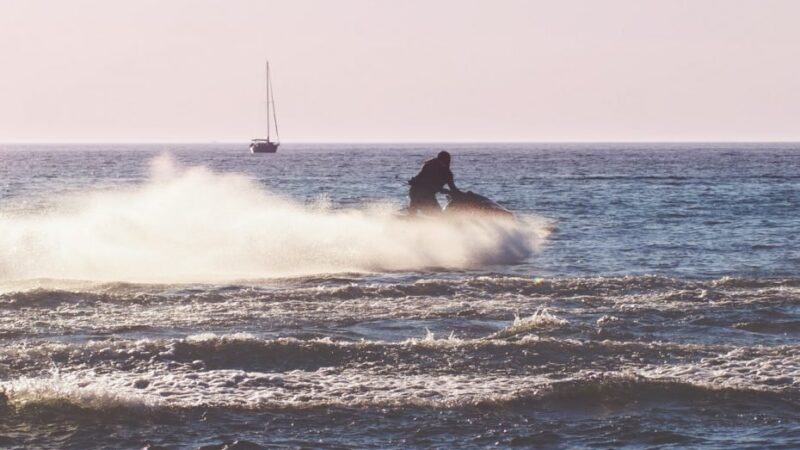There’s nothing quite like spending the day on your boat with family and friends. With the holiday weekend approaching, be sure safety is foremost in your mind. Don’t forget that safety begins with you.
– Life jackets are essential. Life jackets are at the core of safe boating, whether using a motorized or non-motorized vessel. Always wear a U.S. Coast Guard-approved life jacket. Make sure the jacket is a proper fit for your size and weight. Make sure the jacket is properly fastened. Good swimmers still need life jackets – when people fall off a boat, they may become disoriented, injured or unconscious. Wear it, don’t stow it. Tucked-away life jackets are useless in an accident.
– Never drink alcohol while boating. Alcohol affects judgment, vision, balance and coordination. Keep in mind that the sun, wind and boat vibration can accelerate impairment. Be responsible and carry non-alcoholic drinks.
Article Photos

– Protect against propeller strikes. Make sure all passengers are accounted for before starting the engine, and wear your emergency cut-off switch at all times. When people are in the water, turn off the engines; better yet, remove keys from the ignition and ask one person to “propeller watch.”
– Carry safety equipment on board. On top of life jackets for all, stock a complete first-aid kit, a tool kit, horn or whistle, flares, a fire extinguisher, marine VHF radio, an extra dock line or two, and a throwable flotation device, at a minimum. Remember sunscreen and know the signs of heat illnesses.
– Check your equipment and make sure it is in good working order; get a free vessel safety check from a United States Power Squadron near you.
– Review a pre-departure checklist to ensure you have everything you need in your boat.
– Make a float plan and be sure to give it to someone.
– Review all the navigational rules and make sure you understand them.
– Don’t overload the boat with people or equipment. Always follow your boat’s capacity restriction and make sure that passengers stay safely within the boat’s railings.
– Check the weather beforehand. Once on the water, the weather can turn. If you notice storm clouds, a sudden temperature drop or wind speed increasing, play it safe and get off the water.
– Follow proper anchoring procedures.
– Skiing, tubing and wakeboarding are popular water sports, but they also can be dangerous with participants traveling at high speeds. Remember to always have a spotter in the boat, and go over basic hand signals. Make sure the propeller is stopped before getting back on the boat. Enjoy these activities during daylight hours only.
– Always exercise good judgment – use common sense – respect your limits and keep within your limits to avoid injury.
Let’s all have a safe and enjoyable holiday weekend.
Pat Schmidt is a member of America’s Boating Club of Sanibel-Captiva. For more about the chapter and the courses it offers, visit www.sancapboating.club or contact education@sanibelcaptivasps.org or 239-985-9472.





Recent Comments